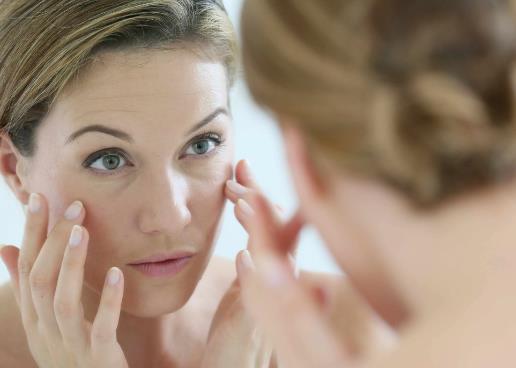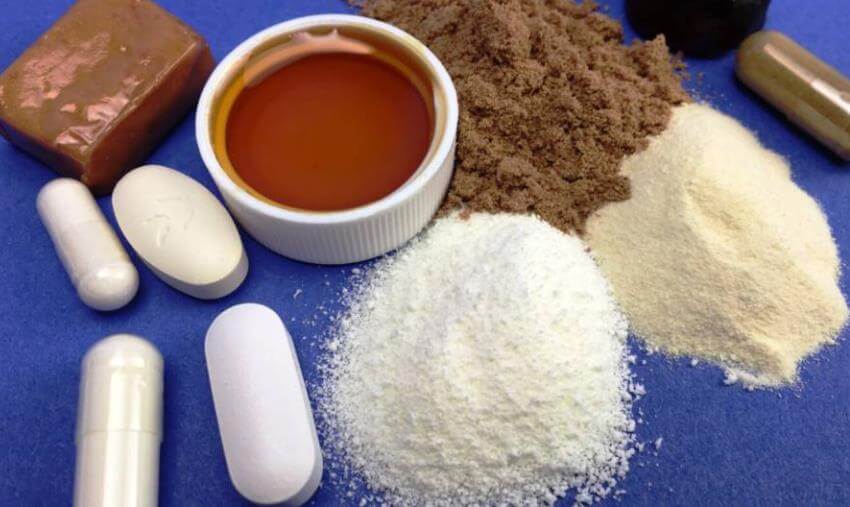Meta Description
: Discover the truth about collagen for the skin and how it can help you achieve a radiant look. Learn about the benefits, myths, and facts surrounding this vital protein.
Fast Facts About Collagen
- Collagen is the most abundant protein within us as humans, making up around 30% of our total protein.
- It’s found within our skin and in our bones, within muscles and tendons, and in all of our internal organs.
- As we get older, our body’s collagen production plummets, which can encourage deep-set wrinkles, visibly sagging skin, and other telltale signs of aging the skin.
- Collagen plays a vital role in keeping our bones healthy, maintaining supple joints and blood vessels healthy, and promoting healthy hair, strong nails, and optimum brain function.
- Collagen gives our skin strength, elasticity, and structure, so it’s often called the “glue” that holds our body together.
Introduction to Collagen for Skin

Collagen is a huge buzzword in the beauty industry right now and is often touted as a “miracle cure” for those who have developed aging skin.
But what exactly is collagen, and is it really the scientific key to achieving that radiant, youthful look?
Within this article, we’ll separate fact from fiction and explore some of the basic science behind collagen for skin, its skin-friendly benefits, and how to incorporate it flawlessly into your daily skincare routine.
What is Collagen?
Collagen is a really clever and abundant protein that is primarily made up of amino acids. It’s found in our:
- Skin layers
- Bone tissue
- Deep in our muscles
- All of our tendons, and
- Every organ in our body.
Collagen gives our skin resilient strength, amazing elasticity, and plumpy structure, which is why it’s often called the “glue” that holds our body together, but what are the telltale signs that your body is not receiving enough of the good stuff?
If you have skin that has depleted levels of collagen, you may notice you have the following:
- Thin, sagging skin that looks shapeless, crepey, or delicate.
- Fine, feathery lines and wrinkles can appear deeper and more prominent.
- Reduced skin elasticity and lack of bounce-back.
- Dull, pale, and dry-looking skin that lacks radiance.
- Dark circles under the eyes and general puffiness.
There are several
types of collagen
, but type I, type II, and type III are the most abundant in our bodies.
Type I
Type I collagen is found in our skin, bones, and tendons.
Type II
Type II collagen is found deep in our cartilage.
Type III
Type III collagen is found everywhere in our bodies, within our skin, deep in our muscles, and in all of our blood vessels.
The Science Behind Collagen and Its Benefits for Skin

Collagen plays a crucial role in maintaining skin health and appearance. It’s responsible for providing structure and elasticity to our skin, which helps to reduce the appearance of fine lines and wrinkles.
Now that we are getting to grips with what collagen actually is, let’s explore the science behind its overall benefits for the skin.
Studies have shown that supplementing a regular diet with increased collagen can improve skin elasticity, hydration, and overall skin texture. One
controlled study
found that women who took a collagen supplement for weeks significantly improved skin hydration and elasticity compared to those who didn’t.
Collagen has also been shown to kick-start the production of other essential proteins required for optimum skin health, like
elastin
and fibrillin. These proteins help to maintain skin elasticity and keep it firm, which can help to reduce the appearance of those pesky fine lines and wrinkles.
Benefits of Collagen
The benefits of collagen for the skin are numerous. Here are just a few:
- Improves skin elasticity
- Reduces the overall appearance of fine lines and wrinkles
- Increases skin hydration
- Improves skin texture
- Stimulates the production of other proteins necessary for skin health, like elastin and fibrillin
Sources of Collagen: Food and Supplements

There are two primary sources of collagen: consumable food and supplements.
Collagen in Food
Collagen naturally occurs in animal products like bone broth, chicken, fish, and beef.
Regarding food sources of collagen, bone broth is one of the best. It’s made by simmering bones for several hours, which releases collagen and other vital nutrients.
Whole chicken, many species of fish, and all cuts of beef are also good, natural sources of collagen.
Collagen Supplements
Collagen supplements are a multi-billion dollar industry right now. They’re often made from bovine or marine collagen and can be easily added to your daily routine. Supplementation can come in many forms, including powders, capsules, and drinks.
Collagen for Good Skin: How to Incorporate it into Your Skincare Routine
If you’re interested in incorporating collagen into your skincare routine, there are several ways to do so. One of the simplest and most efficient ways is to use a topical collagen-infused serum. These products are formulated with
collagen peptides
that may help to improve the skin’s elasticity and overall hydration.
Another way to incorporate collagen into your skincare routine is to use a specific collagen sheet mask. These masks are infused with topical collagen substances and other super-hydrating ingredients that can help to improve skin texture and appearance.
Finally, you can also take collagen supplements to improve skin health from the inside out.
Collagen supplements
come in so many forms in 2023, including easy-to-obtain powders, tablets or capsules, and supplementary drinks containing low levels of collagen.
They are all often made from bovine or marine collagen and can be easily added to your daily routine.
Possible Side Effects and Precautions When Taking Collagen Supplements

There are no known side effects of including naturally occurring collagen in foods in your diet. Naturally occurring collagen found in animal flesh, like meat and fish, is considered safe and healthy.
In fact, eating collagen-rich foods is recommended as part of a healthy diet.
While collagen supplements are generally considered safe, there are some potential side effects and precautions to mention. When taking oral collagen supplements or incorporating a new element of change, some people may experience digestive complaints like bloating, diarrhea, or constipation.
It’s also imperative to mention that collagen supplements may not always be suitable for vegetarians or vegans due to animal derivatives and often bovine sources.
If you’re considering taking collagen supplements, it’s a good idea to talk to your doctor first; this is especially important if you have any underlying health conditions.
Who is a Good Candidate for Increased Collagen?
Anyone can benefit from increased collagen, but it’s especially important for those over 30, as our body’s natural collagen production naturally falters around this time; it’s part of the aging process!
If you’re searching for a sustainable way to improve the appearance of those more profound and more prominent fine lines and wrinkles, or if you’re concerned about maintaining skin elasticity and hydration, collagen supplements may be a good option.
Other Ways to Boost Collagen Production in the Skin
While collagen supplements can effectively improve skin health, there are also other ways to boost collagen production in the skin. Here are a few:
- Protect your skin from harsh sun damage by wearing a broad-spectrum sunscreen and avoiding prolonged sun exposure
- Quit smoking, as it can contribute heavily to collagen depletion
- Eat a healthy and whole diet rich in fruits, vegetables, and lean protein
- Use quality skincare products that contain antioxidants, like vitamins C and E
- Exercise regularly, as it can help to drastically improve blood flow and stimulate collagen production
FAQs About Collagen
Here are some frequently asked questions about collagen in general:
Q: Can increasing collagen intake help with joint pain?
A: Possibly, yes, increasing collagen intake may
improve joint pain
and flexibility in some joints, which can reduce joint pain.
Q: How long can it take to see results from increasing my collagen intake?
A: Results vary, but most people start to see skin texture and hydration improvements within a few weeks of consuming a higher proportion of collagen.
Q: Are collagen supplements safe?
A: Collagen supplements are
generally safe
, but some people may experience digestive issues like bloating diarrhea, or constipation.
Conclusion:
Is Collagen the Key to Radiant Skin?
Collagen is a super important protein that is crucial in maintaining skin health with a youthful appearance. It’s been shown to improve skin elasticity, reduce wrinkles, and increase hydration.
While collagen supplements can be effective in improving skin health, there are also numerous other ways to try and boost collagen production in the skin, like protecting your skin from sun damage, quitting smoking, and eating a healthy diet.
If you’re considering taking collagen supplements, you must talk to your doctor first, especially if you have any underlying health conditions. And remember that while collagen can be an effective tool for achieving radiant skin, a healthy lifestyle that includes a healthy and balanced diet, regular exercise, and proper skincare is also essential.
So, is collagen the key to radiant skin?
It’s undoubtedly an essential piece of the puzzle. Still, it’s important to realize that there’s no one-size-fits-all solution for skin care from the outside and from within.
By incorporating an increased level of collagen into your daily skincare routine and making healthy lifestyle choices, you can achieve that radiant and youthful-looking skin you’ve been dreaming of.

 By myulikeadmin
By myulikeadmin



